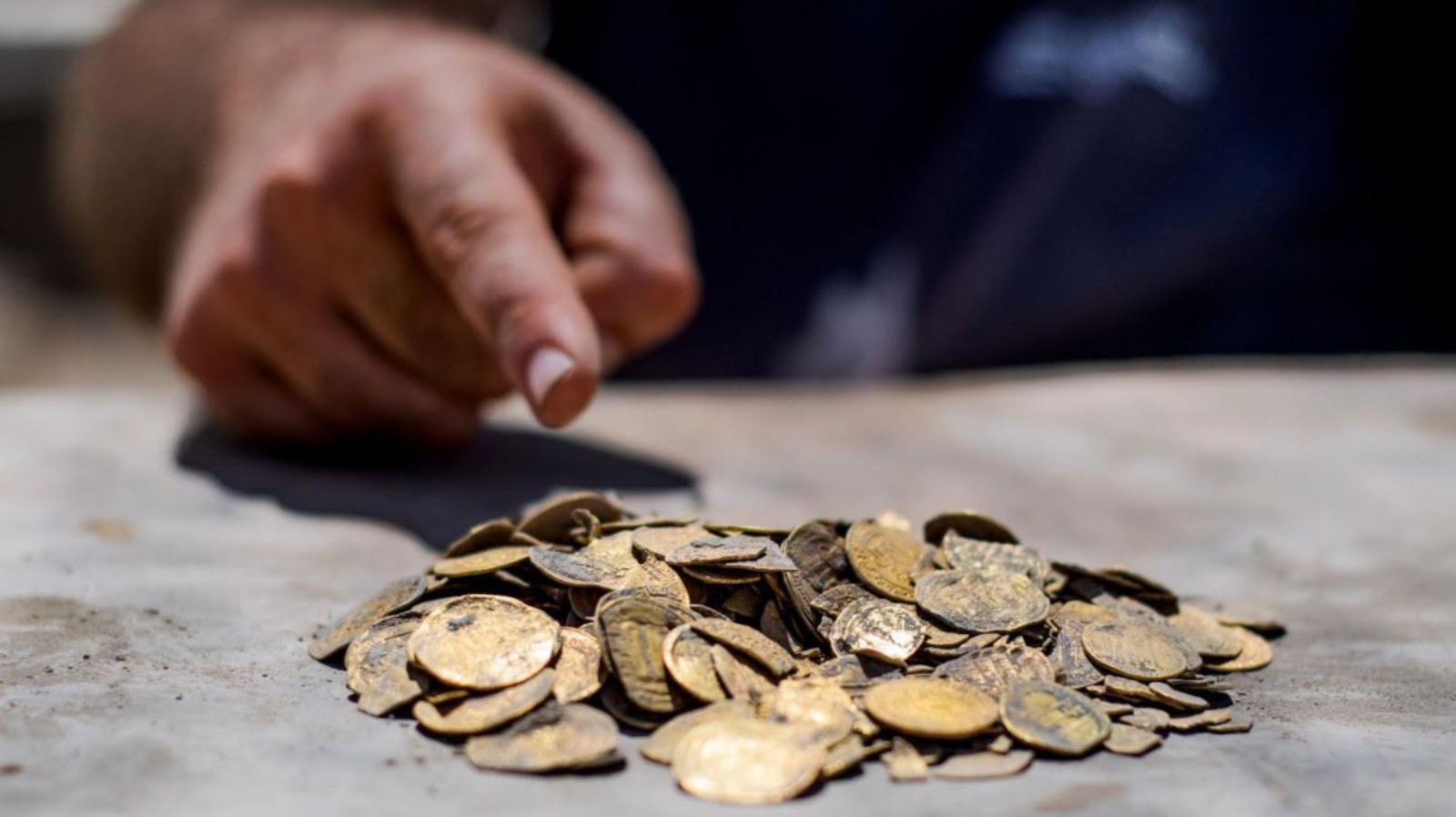Israeli teenagers volunteering at an archaeological dig recently unearthed a rare treasure – 425 gold coins stored in a deliberately buried clay jar. The coins date back some 1,100 years ago to the Islamic Abbasid period.
The excavation was carried out by the Israel Antiquities Authority ahead of the construction of a new neighborhood in an undisclosed location in the center of the country.
“The person who buried this treasure 1,100 years ago must have expected to retrieve it, and even secured the vessel with a nail so that it would not move. We can only guess what prevented him from returning to collect this treasure,” said IAA’s excavation directors Liat Nadav-Ziv and Elie Haddad.
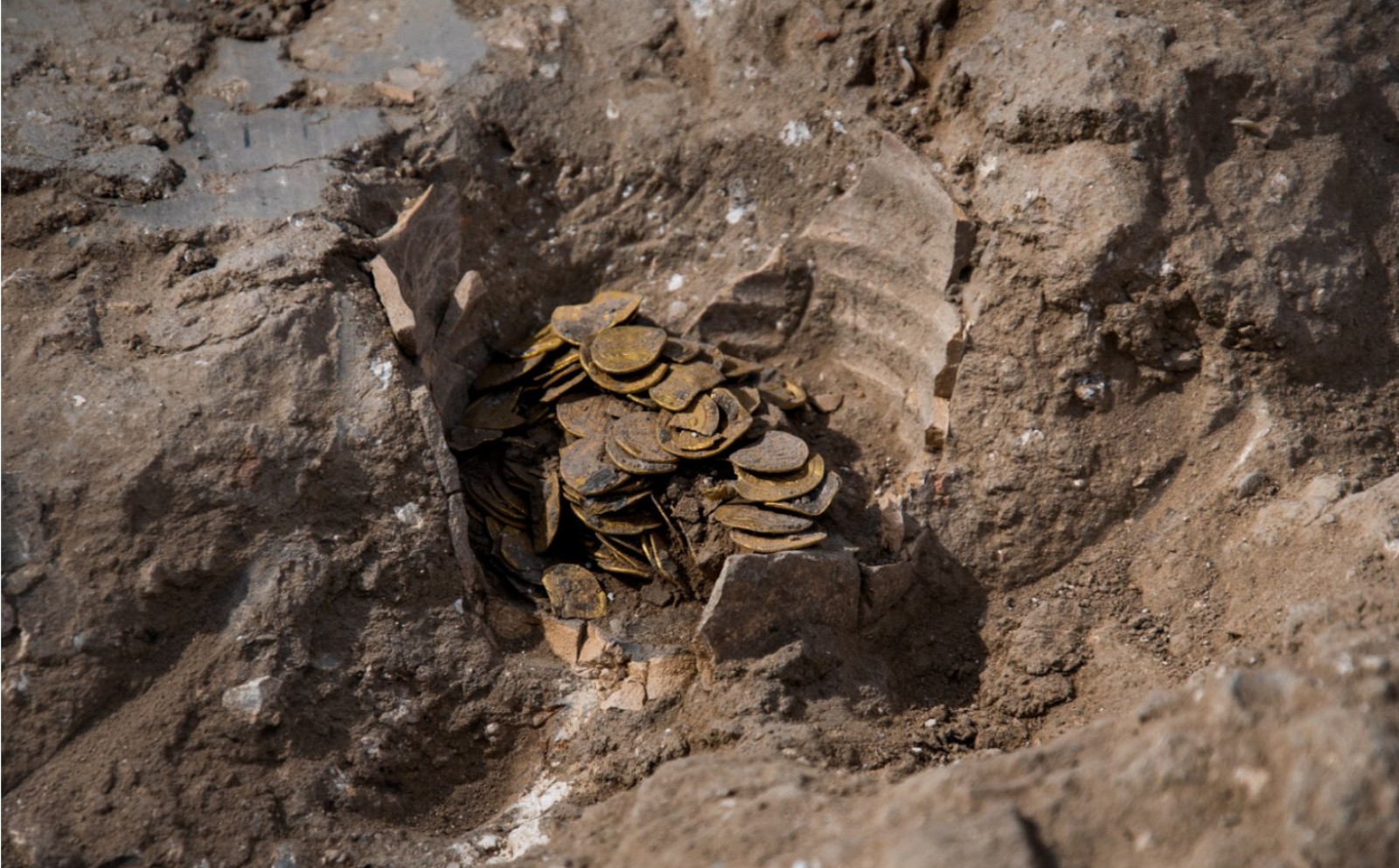
“Finding gold coins, certainly in such a considerable quantity, is extremely rare. We almost never find them in archeological excavations, given that gold has always been extremely valuable, melted down and reused from generation to generation,” they added.
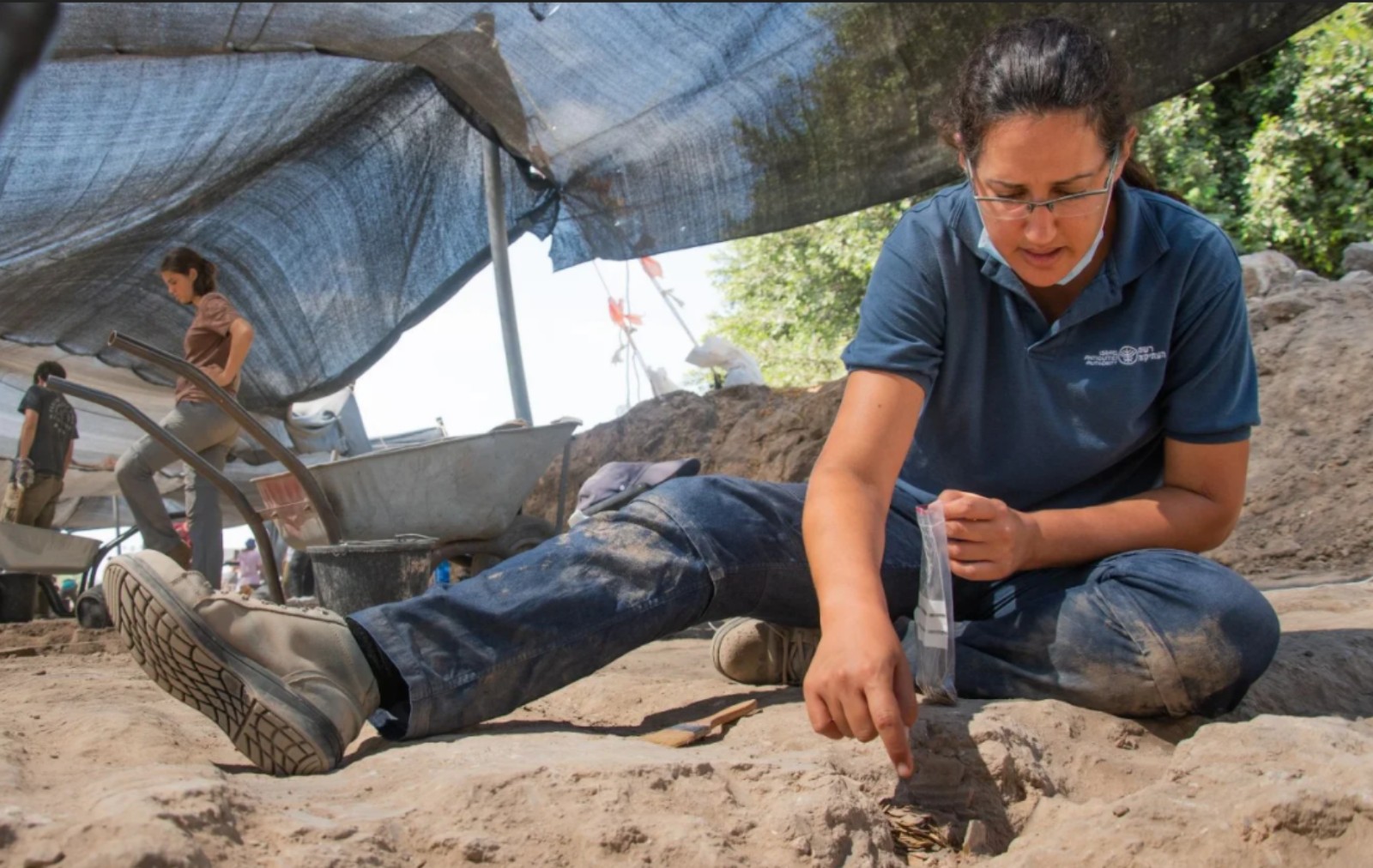
“The coins made of pure gold that does not oxidize in air were found in excellent condition, as if buried the day before. Their finding may indicate that international trade took place between the area’s residents and remote areas.”
According to Robert Kool, a coin expert at the IAA, this is one of the earliest known caches from the Abbasid period ever unearthed in Israel. The total weight of the hoard is about 845 grams of pure 24-carat gold – enough to buy a luxurious house in the wealthy Egyptian capital of the time, Fustat.
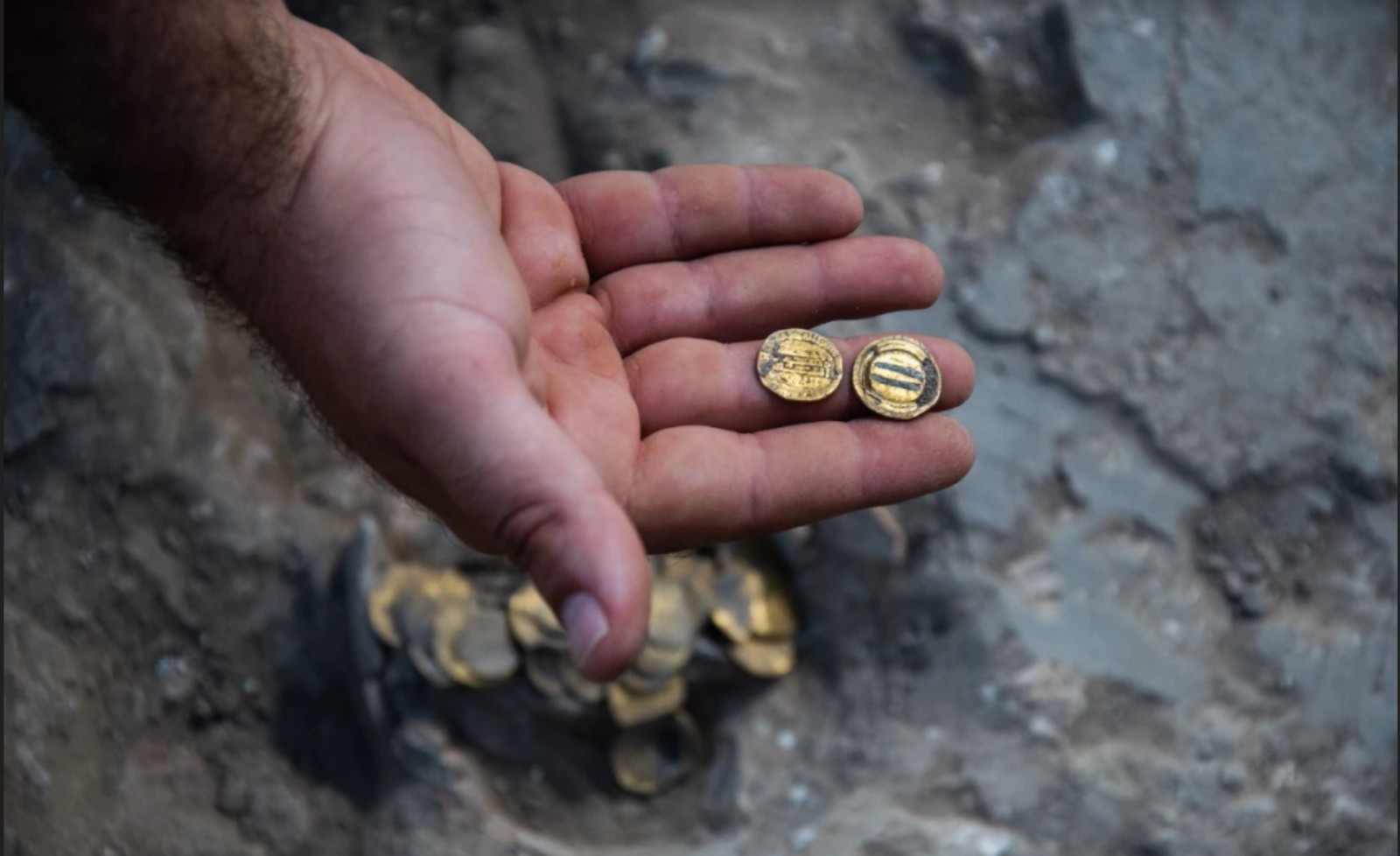
The cache includes some 270 small gold cuttings alongside the full gold dinars. These pieces served as “small change” in the monetary system of Islamic countries at the time.
One of the cuttings is a rare piece of a type never excavated in Israel – a fragment of a gold solidus of the Byzantine Emperor Theophilos, minted in empire’s capital of Constantinople. Its appearance in the Islamic treasure provides rare material evidence of continuous connections between the two rival empires.
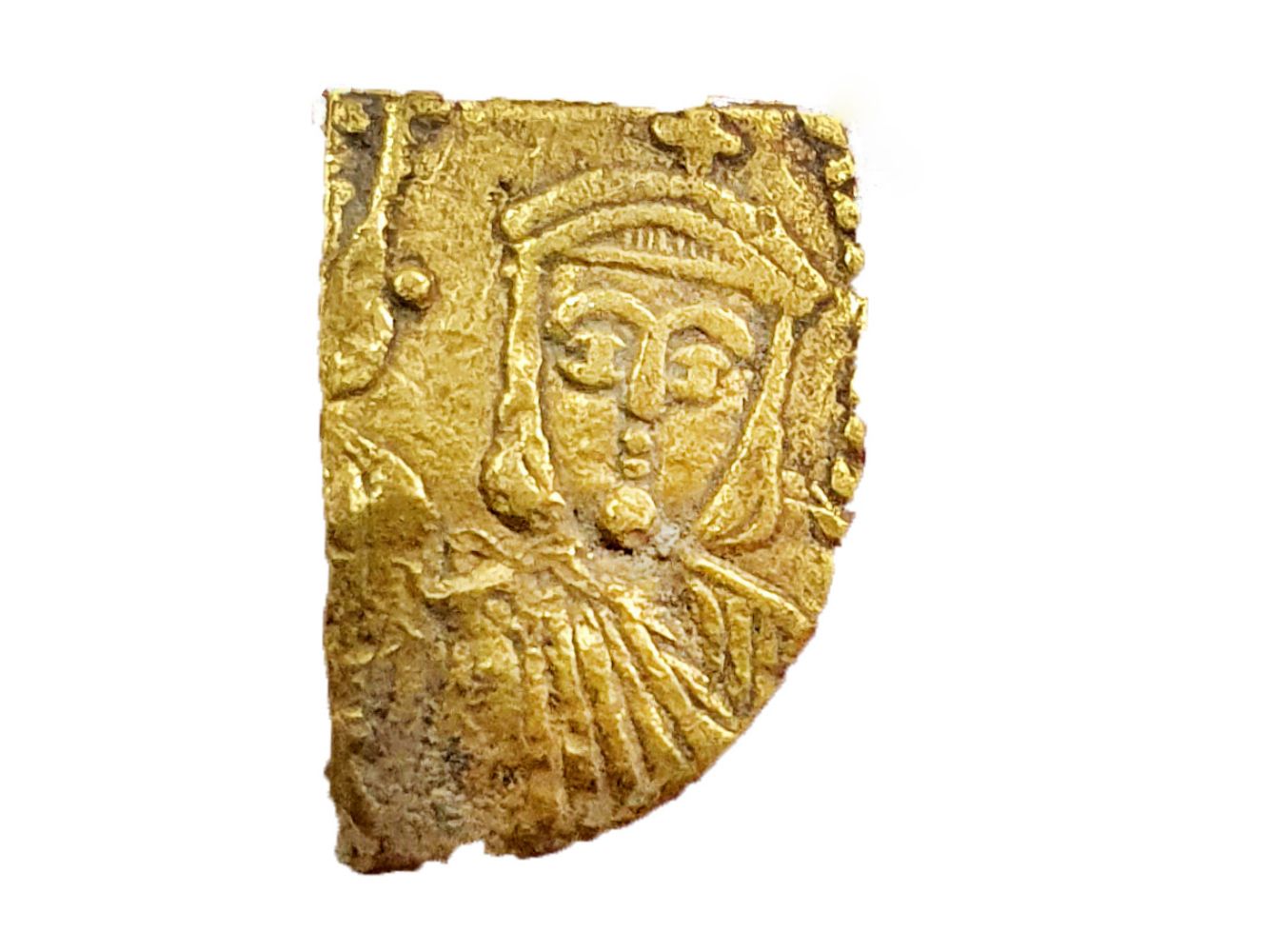
Fighting for Israel's truth
We cover what makes life in Israel so special — it's people. A non-profit organization, ISRAEL21c's team of journalists are committed to telling stories that humanize Israelis and show their positive impact on our world. You can bring these stories to life by making a donation of $6/month.





